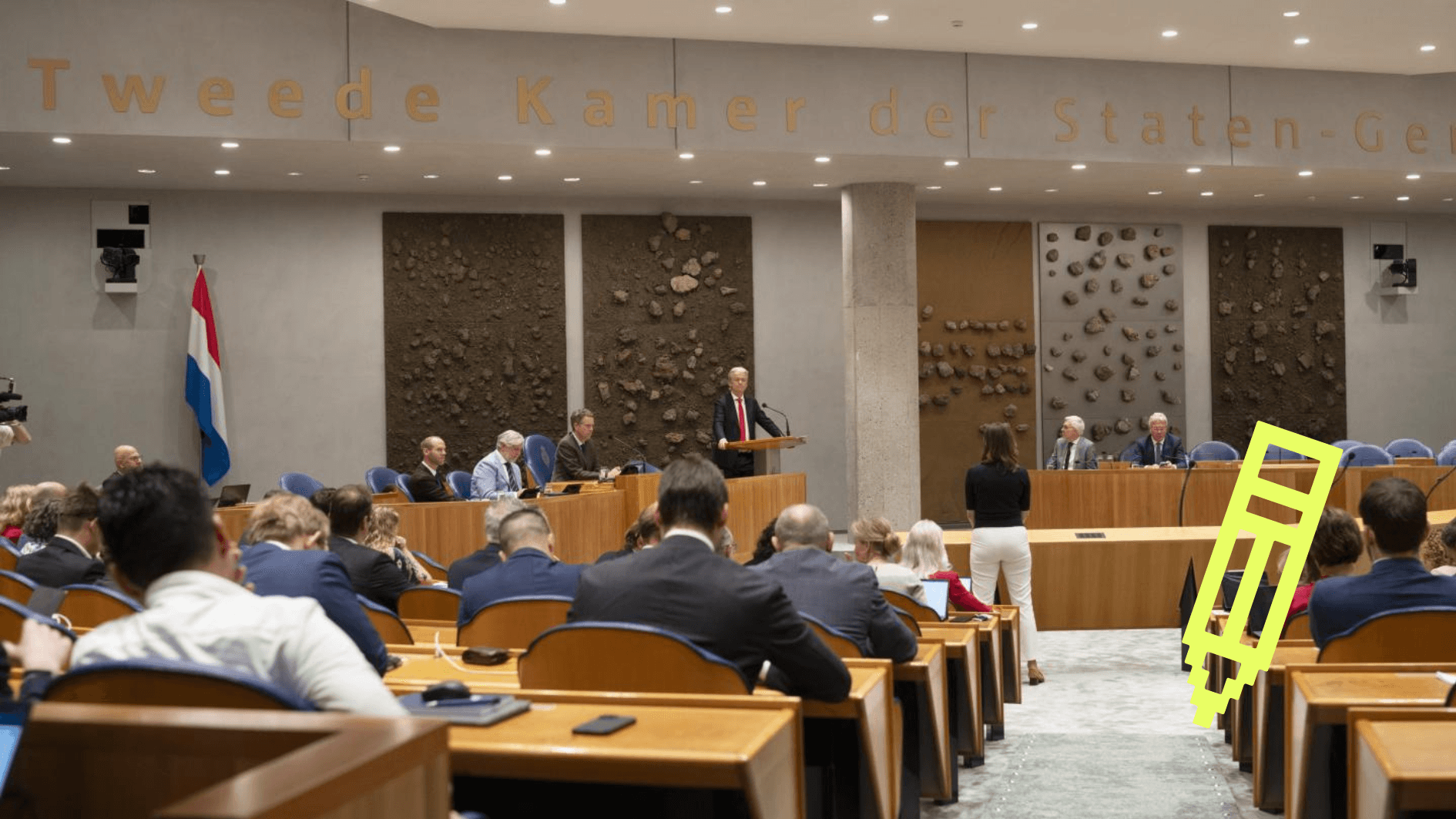Innovation policy: these parties facilitate progress
Which parties translate innovative ideas into the House of Representatives? IO+ investigated this.
Published on October 28, 2025

Our DATA+ expert and Editor-in-Chief, Elcke Vels, explores AI, cyber security, and Dutch innovation. Her "What if..." column imagines bold scenarios beyond the norm.
Tomorrow, the Netherlands will go to the polls. That means you have one more day to familiarize yourself with what the parties stand for. Many parties claim to be “future-oriented” in their election programs. But how innovative were they actually in the House of Representatives during the last term of office? The editors of IO+ investigated. Specifically, in this article, we looked at which parties are at the top when it comes to the preconditions for innovation, such as subsidies and regulations for startups.
About our research
The Netherlands and innovation: the two seem to go hand in hand. On the European Innovation Scoreboard (EIS), which measures the performance of EU countries in the field of research and innovation, the Netherlands ranks third in 2025. This puts our country among the top European innovation leaders.
However, if the Netherlands wants to maintain this position, there is work to be done in the coming years. The study also shows, for example, that the Netherlands is not good at commercializing knowledge-intensive and innovative products. In order to commercialize innovation more effectively, clear preconditions are needed, which the government must support. These include investing in field labs and testing grounds or targeted subsidies for start-ups.
Many political parties seem to be aware of this and promise to focus strongly on innovation policy in the coming period. “We are investing in a strong, innovative, and cleaner economy,” writes the SP in its election program. The VVD: “We are committed to innovation, international competitiveness, and the free trade of our knowledge and products worldwide.” These are fine promises, but anyone who wants to know whether a party will keep its promises should look at its voting behavior during the previous term of office.
The Hague Innovation Check: D66 and Volt in the lead
For our research, The Hague Innovation Check, we looked at the subcategory community. This concerns the preconditions for innovation, such as policy, regulations, and knowledge migration. Think of subsidies for innovative projects, support for start-ups, and policy measures that promote cooperation and knowledge exchange.
The dataset for community consists of a total of 76 votes. We looked at votes during the previous term of office (from July 2, 2024, to June 3, 2025), including motions, amendments, and legislation. A pro-innovation score was calculated for each political group by weighing the votes and the sentiment of the motions against each other.
The result: D66 and Volt share first place (72.6%), while PVV (24.2%) and PvdD (41.9%) score lowest.
Innovation policy high on the agenda
As in the election programs, the votes also show that many parties want a strong innovation policy in the Netherlands. For example, members Krul and Van Dijk submitted a motion asking for a concrete proposal for a simpler and more effective innovation infrastructure to be included in the announced innovation action plan. The motion was supported by all parties.
Volt is in (shared) first place. Laurens Dassen submitted a motion calling for an assessment of how the high-tech manufacturing industry can obtain the necessary private and public resources to grow again. The PVV and the PvdD were the only two parties that voted against it.
According to Volt, much needs to be done at the European level to strengthen innovation policy. Laurens Dassen and Inge van Dijk submitted a motion to consult with the European Commissioner on ways to reduce the regulatory burden on start-ups — for example, through new legal forms such as the Innovative European Company or EU Inc.. The aim is to set up a single joint European start-up organization.
D66 shares first place with Volt and also submitted several motions on innovation policy. In one of these, Joost Sneller calls for an action plan to ensure that the Netherlands achieves the European target of 17% innovation-oriented procurement by 2030.
In an opinion piece, Sneller elaborates on what needs to be done to improve Dutch innovation capacity. Like Dassen, he also says that much remains to be done at the European level.
The election results will determine whether the Netherlands will fully commit to innovation policy in the coming years—or whether it will take a step back. Whether parties such as D66 and Volt can continue their pro-innovation course depends on the new balance of power in parliament.
